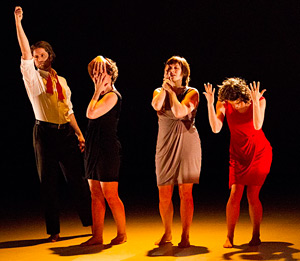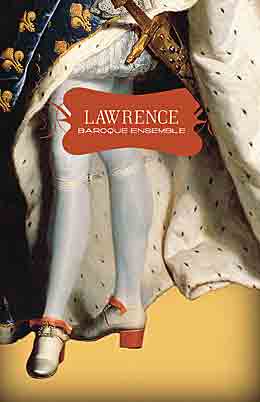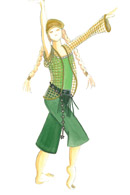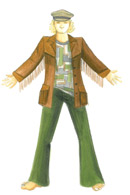Inspired by the life and photographs of Chicago nanny Vivian Maier, who used her off-duty time to wander the streets taking snapshots of unsuspecting strangers, the Rebecca Salzer Dance Theatre presents the world premiere of “Bird Lady” April 3 and 4 at 8 p.m. in Lawrence University’s Warch Campus Center. Both performances are free and open to the public.
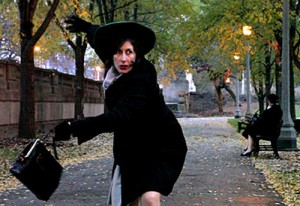
Maier’s immense collection of photos, hidden in storage lockers and first discovered after her death in 2009, has brought Maier posthumous fame. Through dance, theatre, music and video, Salzer’s “Bird Lady” explores questions Maier’s work has raised about the private self in an increasingly public world. Can one’s art be as private as one’s self? Can something be called “art” that is created for one’s own satisfaction and not meant to be shared?
“Each of the performers chose the portrait of a woman who is looking back and acknowledging Maier,” said Salzer, visiting professor of dance at Lawrence. “We wrote and choreographed in the voices we imagined the subjects to have. We crafted material based on our own lives as contemporary women artists and because we felt a personal affinity with the women in the portraits, our own stories and the imagined stories of the portrait subjects began to blend. The characters, movement, sound and text in ‘Bird Lady’ are our multilayered personal responses to Maier’s images.”
Joining Salzer on “Bird Lady” are dance artists Liz Burritt and Kristina Fluty, opera director Kristine McIntyre, composer AlexTemple, videographer Anna Ryndova and designers Alina Bokovikova and Aaron Sherkow.
About Lawrence University
Founded in 1847, Lawrence University uniquely integrates a college of liberal arts and sciences with a nationally recognized conservatory of music, both devoted exclusively to undergraduate education. It was selected for inclusion in the Fiske Guide to Colleges 2014 and the book “Colleges That Change Lives: 40 Schools That Will Change the Way You Think About College.” Individualized learning, the development of multiple interests and community engagement are central to the Lawrence experience. Lawrence draws its 1,500 students from nearly every state and more than 50 countries.
